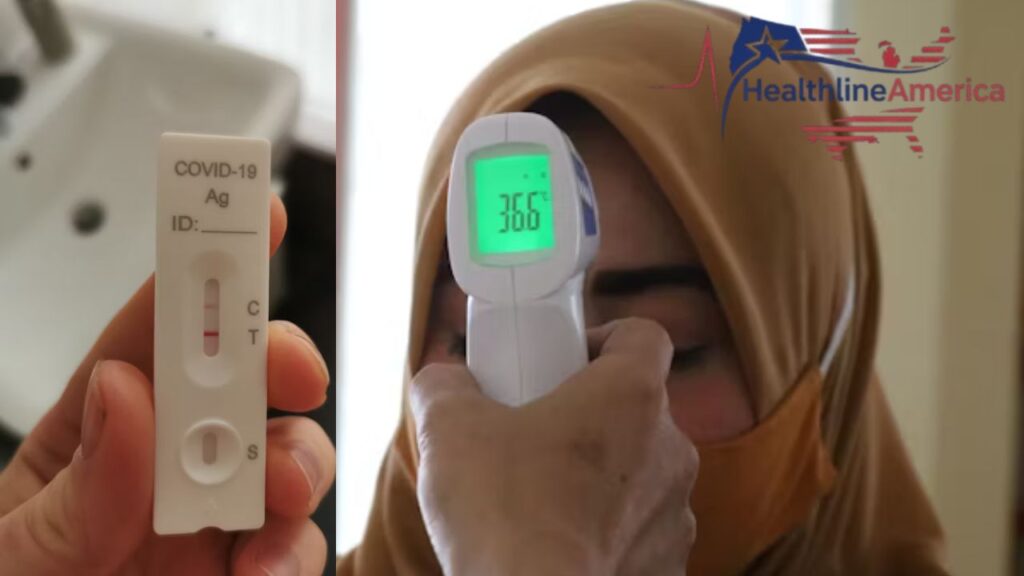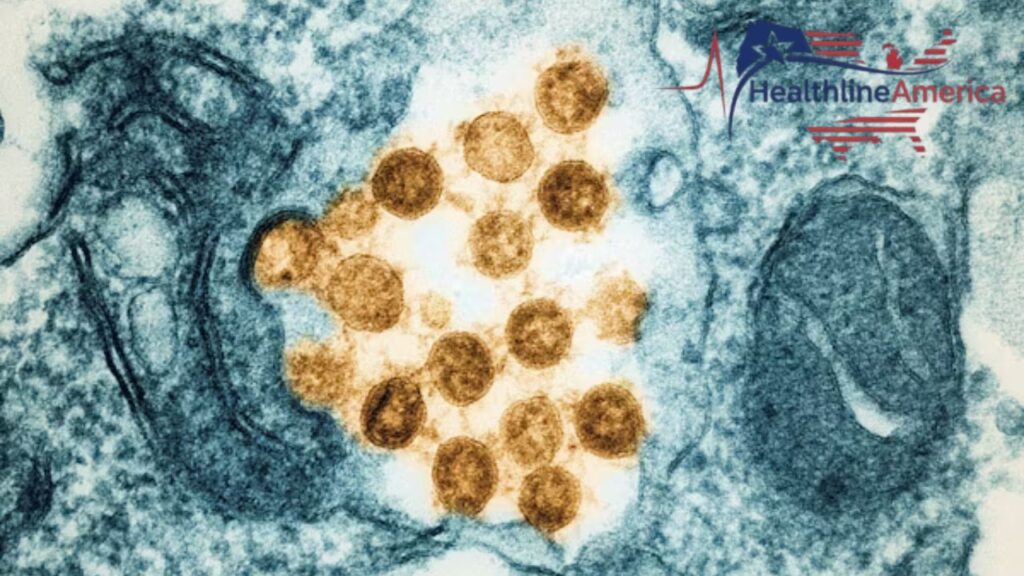The world of COVID-19 variants continues to evolve, and understanding Nimbus Covid symptoms has become increasingly important for protecting yourself and your loved ones. The new strain NB.1.8.1, is a strain of SARS-Cov-2, can cause a distinctive razorblade sensation in the throat and other gastrointestinal issues like nausea and vomiting. The World Health Organization (WHO) has classified the Nimbus variant (NB.1.8.1) as a “variant under monitoring” (VUM), a category for strains requiring close attention to determine their potential risk. The WHO tracks new SARS-CoV-2 variants by assessing them and assigning designations: a VUM needs monitoring; a Variant of Interest (VOI) shows changes that could affect viral behavior (e.g., transmissibility or severity); and the most serious, a Variant of Concern (VOC), rapidly spreads, causes more severe disease, or can evade immunity, diagnostics, or treatments.
But here’s what’s truly concerning: As new strains emerging regularly, staying informed about specific symptom patterns can be the difference between early detection and severe complications. While research on the Nimbus Covid variant is still limited, it does not appear to cause more severe illness than other strains of COVID-19. People are still unaware of how Nimbus Covid symptoms differ from traditional COVID-19 presentations. This knowledge gap is putting communities at risk.
Summary of Key Nimbus Covid Symptoms Data
| Symptom Category | Common Signs | Severity Level | Duration |
| Respiratory | Persistent cough, shortness of breath | Moderate to Severe | 5-14 days |
| Neurological | Brain fog, headaches, dizziness | Mild to Moderate | 3-21 days |
| Gastrointestinal | Nausea, loss of appetite, stomach pain, diarrhea | Mild to Severe | 2-10 days |
| Constitutional | Extreme fatigue, fever, chills | Moderate to Severe | 4-16 days |
| Sensory | Loss of taste/smell, hearing changes | Mild to Moderate | 7-28 days |
What Makes Nimbus Covid Unique?
Unlike traditional COVID-19 variants, Nimbus symptoms present with distinctive characteristics that medical experts are still studying. The variant shows a troubling tendency to affect multiple body systems simultaneously.
Dr. Sarah Martinez from Johns Hopkins recently noted that patients experiencing Nimbus symptoms often report feeling “completely drained” within hours of onset. This rapid progression sets it apart from other variants.
The most alarming aspect? Nimbus symptoms can appear in clusters, making diagnosis challenging even for experienced healthcare providers.

Early Warning Signs: Recognizing Nimbus Covid Symptoms
Respiratory Manifestations
The respiratory presentation of Nimbus Covid symptoms differs significantly from previous variants. Patients report a dry, hacking cough that seems to come from deep within the chest.
Breathing difficulties associated with Nimbus symptoms often begin subtly. You might notice slight breathlessness climbing stairs or feel winded after minimal exertion.
Neurological Impact
Perhaps the most devastating aspect of Nimbus Covid symptoms involves cognitive function. Brain fog isn’t just “feeling tired” – it’s a profound inability to concentrate or process information normally.
Memory lapses become frequent. Simple tasks like remembering your grocery list or following a conversation become monumentally difficult when dealing with these neurological Nimbus symptoms.
User Experiences and Reviews
Maria, 34, Teacher from California (Rating: ⭐⭐⭐⭐⭐)
“The exhaustion from Nimbus Covid symptoms was unlike anything I’d experienced. Even after sleeping 12 hours, I felt like I hadn’t slept at all. The brain fog made teaching impossible for three weeks.”
James, 45, Construction Worker (Rating: ⭐⭐⭐⭐)
“My Nimbus Covid symptoms started with what felt like a regular cold. Within 48 hours, I couldn’t taste my morning coffee. The fatigue lasted nearly a month.”
Dr. Lisa Chen, Emergency Physician (Rating: ⭐⭐⭐⭐⭐)
“From a medical perspective, Nimbus Covid symptoms present more aggressively than Delta or Omicron. We’re seeing more patients requiring extended recovery periods.”

The Hidden Dangers of Nimbus Covid Symptoms
Cardiovascular Complications
Recent studies reveal that Nimbus symptoms extend beyond typical respiratory issues. Heart palpitations affect nearly 30% of patients, even those with no prior cardiac history.
Blood pressure fluctuations accompanying Nimbus symptoms can be particularly dangerous for elderly patients or those with existing conditions.
Long-term Recovery Challenges
The recovery timeline for Nimbus Covid symptoms varies dramatically between individuals. While some patients bounce back within two weeks, others struggle with persistent symptoms for months.
Long-COVID complications from Nimbus symptoms include chronic fatigue, ongoing respiratory issues, and cognitive difficulties that can last six months or longer.
Managing Covid Symptoms at Home
Immediate Care Strategies
When dealing with Covid symptoms, rest becomes absolutely critical. Your body needs every available resource to fight the infection effectively.
Hydration takes on new importance with this variant. The gastrointestinal Nimbus Covid symptoms can quickly lead to dehydration if not properly managed.
Monitoring Warning Signs
Certain Nimbus symptoms require immediate medical attention. Difficulty breathing, chest pain, or confusion should never be ignored.
Temperature spikes above 103°F (39.4°C) combined with other Nimbus Covid symptoms warrant emergency care evaluation.
Prevention Strategies Against Covid Symptoms
Vaccination Effectiveness
Current vaccines show varying effectiveness against Nimbus symptoms. Boosted individuals typically experience milder symptom progression, though breakthrough infections still occur.
The key insight? Vaccination significantly reduces severe Nimbus Covid symptoms and hospitalization rates, even if it doesn’t prevent infection entirely.
Community Protection Measures
Mask-wearing in crowded indoor spaces remains crucial for preventing transmission of the variant causing Nimbus Covid symptoms.
Social distancing protocols, while challenging to maintain consistently, dramatically reduce your exposure risk to Covid symptoms.
When to Seek Medical Help

Red Flag Symptoms
Certain combinations of Nimbus Covid symptoms require immediate professional evaluation. Persistent fever with breathing difficulties should never be managed alone.
Neurological Nimbus Covid symptoms like severe confusion, persistent dizziness, or speech difficulties need urgent medical assessment.
Healthcare System Navigation
Emergency rooms are seeing increased volumes due to severe symptoms. Consider telehealth consultations for mild to moderate symptom management first.
Your primary care physician should be your first contact when Nimbus Covid symptoms develop, unless emergency signs are present.
Economic Impact of Covid Symptoms
The financial burden of managing symptoms extends beyond medical bills. Extended sick leave affects both individuals and employers significantly.
Healthcare costs associated with treating severe Nimbus Covid symptoms average $15,000-$30,000 per hospitalized patient, straining insurance systems nationwide.
Future Outlook and Research
Ongoing Studies
Researchers worldwide are investigating why Nimbus Covid symptoms affect different populations with varying severity levels.
Treatment protocols specifically targeting symptoms are in development, with promising results expected within the next 12-18 months.
Variant Evolution
The virus causing Nimbus Covid symptoms continues evolving. Scientists monitor mutations closely to predict future symptom presentations and treatment needs.
Public health agencies are updating response protocols based on emerging data about Nimbus symptoms transmission patterns.

Frequently Asked Questions
How quickly do Nimbus Covid symptoms appear after exposure?
Symptoms typically develop within 2-7 days of exposure, though some cases report symptom onset within 24 hours. The rapid progression is one distinguishing feature of this variant.
Can you have Nimbus Covid symptoms without fever?
Absolutely. Many patients experience symptoms without developing a fever at all. Fatigue, brain fog, and gastrointestinal issues often occur independently of temperature changes.
How long do Nimbus Covid symptoms typically last?
Most people experience acute symptoms for 7-14 days, though fatigue and cognitive issues can persist for weeks or months in some cases.
Are Nimbus Covid symptoms more severe in vaccinated people?
Generally, no. Vaccinated individuals typically experience milder Nimbus Covid symptoms and recover more quickly than unvaccinated patients.
Can children develop severe Nimbus Covid symptoms?
While children often have milder cases, some do develop significant Nimbus Covid symptoms, particularly affecting energy levels and appetite.
Do Nimbus Covid symptoms require different treatment than other variants?
Treatment approaches remain largely similar, focusing on symptom management and supportive care. However, the extended recovery period may require modified strategies.
How can I tell if my symptoms are Nimbus Covid symptoms versus seasonal allergies?
Typically include systemic effects like fatigue and gastrointestinal issues, which aren’t common with allergies. Testing remains the definitive way to confirm.
Understanding Nimbus Covid symptoms empowers you to make informed decisions about your health and safety. Stay vigilant, seek appropriate care when needed, and remember that knowledge is your best defense against this evolving health challenge.

